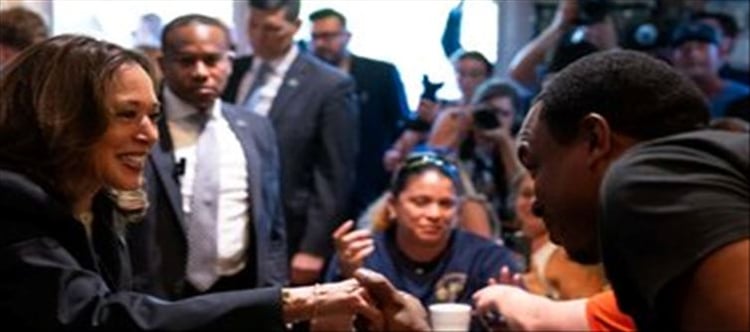
Kamala harris, the Vice President of the United States, has recently unveiled a plan aimed at lifting up Black men and their families by addressing financial inequities. She outlines proposals that include strategies to help Black men build wealth, achieve financial freedom, and lower costs for everyday essentials. To many, this might sound like a promising step toward progress, but there's a deeper narrative that needs attention — one that she conveniently leaves out of the conversation.
harris comes from a complex background, one tied to a legacy of slavery. Her father's own writings reveal that their ancestors were slave owners in Jamaica. For someone who claims to fight for racial justice, this glaring omission from her narrative seems more than a little convenient. Instead of acknowledging this complicated past, harris presents herself as a champion of equality, as if the sins of her ancestors are irrelevant to her vision for America.
But why doesn’t she talk about this legacy? Perhaps because it doesn’t align with the image she wants to project — that of a leader who is "for the people." It's no wonder that, to some, harris seems more like a calculating politician playing to the crowd, rather than someone genuinely committed to uplifting marginalized communities. The parallels to communist ideologies are striking: promises of equality and fairness that sound appealing but often come at the cost of individual freedom and responsibility.
This is not just about Kamala harris, though. This is about the Democratic Party’s ongoing tactic of using Black voters as pawns in their political chess game. Harris’ proposals — like those of many Democrats before her — rely heavily on the promise of free handouts. Free money, free programs, free opportunities, all designed to solve the deeply rooted problems that exist in Black communities. But these “solutions” often come with strings attached — more dependency on the government, more reliance on social welfare, and ultimately, less personal empowerment.
Black people, particularly Black men, are tired of being used as political tokens. They’ve seen these promises before, and many have realized that Democrats’ so-called "help" often leaves them worse off in the long run. Rather than building wealth and achieving financial freedom, many find themselves trapped in a cycle of poverty and government dependence.
Harris’ plan, while well-intentioned on the surface, seems to fall into this same old trap. It's another in a long line of grand promises designed to keep Black voters loyal to the Democratic Party, without offering real solutions for long-term independence and success.
It’s time for Black men — and all Americans — to see through the smoke and mirrors. The policies that truly uplift communities are those that promote self-sufficiency, personal responsibility, and economic opportunity, not handouts and dependency. Kamala harris may be skilled at presenting herself as a savior, but the reality is that her policies do little to break the cycle of poverty and oppression that she claims to fight.
The time for empty promises is over. Black men deserve more than to be seen as political pawns. The future of their communities depends not on more government programs but on real, sustainable opportunities for growth and empowerment. Kamala Harris’ plans are nothing new, and this time, Black Americans won’t be fooled.




 click and follow Indiaherald WhatsApp channel
click and follow Indiaherald WhatsApp channel